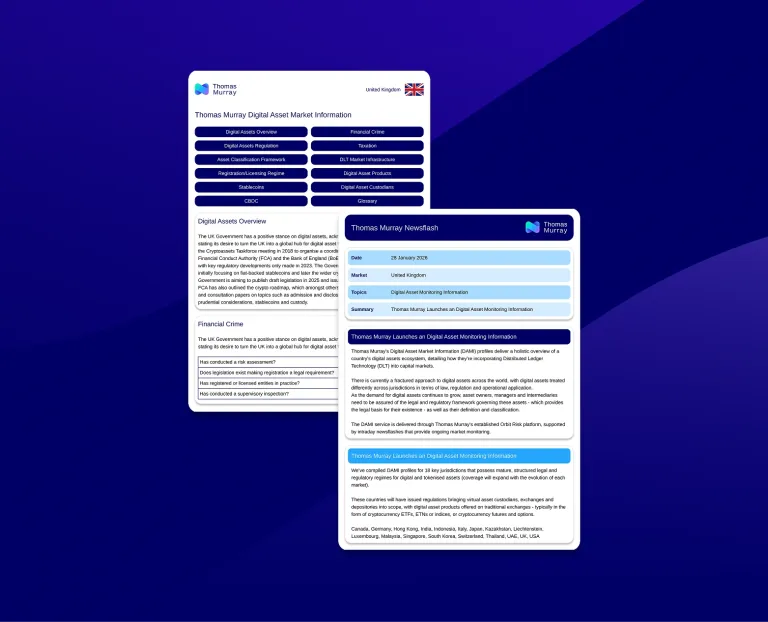Information current as of 17 November 2025
Standard Chartered CEO Expects Blockchain to ‘Eventually’ Power Nearly All Global Transactions
Bill Winters, CEO of Standard Chartered, believes that nearly all global transactions will one day be conducted on a digital blockchain ledger. Speaking on a panel at Hong Kong FinTech Week, Winters said: “Our belief, which I think is shared by the leadership of Hong Kong, is that pretty much all transactions will settle on blockchains eventually, and that all money will be digital.”
Standard Chartered, which is listed in both London and Hong Kong, has been accelerating its involvement with digital assets in recent years, including through digital asset custody services, trading platforms, and tokenised products.
Ripple and Absa Bank Partner to Expand African Digital Asset Custody Services
Ripple has announced a strategic partnership with Absa Bank to provide digital asset custody to the bank’s customers in South Africa. Through the partnership, Absa will leverage Ripple’s institutional-grade digital asset custody technology to deliver scalable and secure storage for tokenised assets, including cryptocurrencies.
Absa, one of Africa’s leading financial institutions, becomes Ripple’s first major custody partner on the continent, with the partnership resulting from a growing demand for secure, compliant digital asset infrastructure across emerging markets. Ripple’s global custody network now includes clients across Europe, the Middle East, Asia-Pacific, Latin America, and Africa.
Reece Merrick, Managing Director, Middle East and Africa at Ripple said: “Africa is experiencing a major shift in how value is stored and exchanged, and our partnership with Absa underscores Ripple’s commitment to unlocking the potential of digital assets on the continent.”
Eurosystem Advances to Next Phase of Digital Euro Project
The Eurosystem has completed the preparation phase of its Digital Euro Project. This has laid the foundations for issuing a digital euro, and is now entering the technical readiness phase, which aims to ensure the system is ready for a potential first issuance in 2029 (assuming legislation passes in 2026).
The Eurosystem will concentrate on three key areas:
- Technical readiness: Establishing the foundational infrastructure for the digital euro, including initial system configuration and pilot testing.
- Market engagement: Working closely with payment service providers, merchants, and consumers to refine the rulebook, gather user feedback, and carry out pilot trials.
- Legislative support: Continuing to offer technical expertise to EU co-legislators and assisting with the legislative process as needed.
IBM Simplifies Access to Digital Assets
IBM has launched its Digital Assets Haven for Institutional Crypto Adoption. This software-as-a-service (SaaS) platform aims to simplify access to digital assets while meeting enterprise-grade compliance standards.
IBM describes Digital Asset Haven as “the operational backbone for financial institutions and regulated enterprises entering the digital asset economy.” It provides a unified platform for secured wallet management and transaction orchestration, efficiently interacting with multiple public and private blockchains.
Citi and Coinbase Partner to Boost Digital Asset Payment Capabilities for Global Clients
Citi and Coinbase have announced their intention to collaborate on digital asset payment capabilities for Citi’s institutional clients and explore additional global clients in the future. The initial phase of their collaboration will focus on fiat pay-ins/pay-outs, supporting Coinbase's on/off-ramps - the bridge between traditional fiat and digital asset ecosystems - along with payments orchestration.
Additional details on specific initiatives, including exploring the creation of alternative fiat to onchain stablecoin payout methods, will be shared in the coming months. This collaboration aims to make these transitions smoother and accessible 24/7 for Citi’s clients.
Argentine CNV Expands Tokenisation Regime and Clarifies PSAV Obligations
The Argentine National Securities Commission (Comisión Nacional de Valores – CNV) has issued General Resolution No. 1087/2025 and Interpretative Criterion No. 100/2025, introducing regulatory adjustments to the framework governing the digital representation (tokenisation) of publicly offered securities and clarifying the modalities for payment of the annual supervision fee applicable to Virtual Asset Service Providers (Proveedores de Servicios de Activos Virtuales – PSAV).
In effect, this expands the scope of securities eligible for digital representation through tokenisation (provided they fall under the medium-impact automatic public offering regime, frequent issuers, or frequent financial trust issuances, where applicable):
The official press releases from the CNV are available (in Spanish) here: Release on Resolution No.1087 and the Release on Interpretative Criterion No.100/2025.
Lise Granted DLT License for Stock Exchange
The Lightening Stock Exchange (Lise) has been granted a Distributed Ledger Technology (DLT) licence from the French Prudential Supervision and Resolution Authority (ACPR) and Financial Markets Authority (AMF) under the EU's DLT Pilot Regime.
Following this approval, Lise intends to offer a singular market infrastructure for tokenised equity listing, leveraging DLT technology to combine the functionality of both a stock exchange and Central Securities Depository (CSD) to provide real-time 24/7 order execution and settlement. Furthermore, as the infrastructure is natively tokenised, Lise can provide streamlined corporate governance and securities management, from general meetings to dividend distribution and shareholder registry maintenance.
Lise intends to list their first initial public offerings (IPOs) in early 2026.
ISDA and Tokenovate to Develop Smart Contract Framework Within the CDM
The ISDA and Tokenovate have announced the establishment of a new taskforce within the Fintech Open Source Foundation (FINOS) to accelerate operationalisation of the Common Domain Model (CDM).
This initiative responds to growing market demand for standardised, interoperable post-trade processing and will deliver an open-source, production-ready library of CDM functions and workflows, freely available to market participants.
The initial focus of the taskforce will be the automation of interest rate resets, referencing the 2021 ISDA Interest Rate Derivatives Definitions. This process underpins trillions of dollars of global financial contracts but remains largely manual and inconsistent across firms.
AMINA Bank Secures MiCA License in Austria for EU Crypto Services
AMINA Bank has announced that its Austrian subsidiary, AMINA (Austria) AG, has received a Crypto-Asset Service Provider license under the Markets in Crypto-Assets framework. This authorisation allows the Swiss-regulated bank to passport crypto services to professional investors across the European Union and European Economic Area.
The license enables cross-border service provision to up to 30 markets without requiring separate authorisations in each jurisdiction.
Crypto Exchange Coinbase Fined €21.5m by Ireland’s Central Bank
The Central Bank of Ireland has fined Coinbase Europe €21.5 million after finding that the crypto asset and wallet services provider failed to properly monitor more than 30 million transactions for money laundering or terrorist financing over the course of a year.
This marks the fourth-biggest financial penalty ever imposed by the Irish financial regulator and comes less than three years after Coinbase Europe was authorised by the authority. It’s the first sanction levelled against a player in the crypto sector by the Central Bank.
Colm Kincaid, a deputy governor in charge of consumer and investor protection with the Central Bank said it’s “important that firms engaged in crypto services have robust controls in place to identify and report suspicious transactions.”
Bank of England Opens Consultation on Stablecoin Regulations
The Bank of England has published a consultation paper outlining its proposed regulatory regime for sterling-denominated systemic stablecoins. Such stablecoins are designed to maintain a stable value and could be used for retail payments and wholesale settlement in the future. This marks a significant step in preparing for a future where new forms of digital money may be widely used for payments alongside existing ones, offering valuable choice for the public.
The Bank’s regime would not cover stablecoins used as assets for non-systemic purposes, such as the buying and selling of crypto assets, which is the predominant use of stablecoins today. Those will be supervised by the Financial Conduct Authority (FCA).
ClearToken Secures FCA Authorisation to Launch Landmark Regulated Digital Asset Delivery vs. Payment (DvP) Settlement Service
ClearToken, the digital financial market infrastructure group, has announced its settlement entity, ClearToken Depository Limited, has received UK Financial Conduct Authority (FCA) approval to launch its Delivery versus Payment (DvP) net settlement system. This is a crucial first step in ClearToken’s roadmap to deliver a horizontal market infrastructure for global digital assets clearing and settlement, establishing the critical regulated foundation necessary for institutional participation in digital asset markets.
The soon to be launched CT Settle service will support cryptoassets, stablecoins and fiat currencies.

Digital Asset Custodian Monitoring
Our DACM solution sets a standard for transparency and risk intelligence in digital markets. Against an industry that is complex, fragmented, unstandardised, and fraught with cyber risk, our solution provides you with the tools and insights to effectively evaluate, select and monitor your digital asset custodian.
Let’s Talk
Interested in strengthening your approach to digital asset custody?
Get in touch to request a demo, or to talk to one of our experts to find out how Thomas Murray can support your risk evaluation, monitoring, and strategy execution in the digital asset space.
Insights

Why 72 hours is the New Standard for M&A Cyber Due Diligence
A decade ago, cyber due diligence sat somewhere between “nice to have” and “we’ll deal with it post-close.” That world no longer exists.

Thomas Murray Launches Digital Asset Market Information (DAMI)
Thomas Murray, a global leader in risk management, due diligence, and cybersecurity services, is proud to announce the launch of Digital Asset Market Information (DAMI).

Solving the "Scale Paradox": How to Automate Portfolio Oversight with Fewer People
In 2026, private equity technical teams are facing a "Scale Paradox": portfolios are growing in complexity, while in the internal teams responsible for operations and cybersecurity oversight, headcounts remain stagnant.

How Private Equity Hackers Choose Their Targets
Private equity firms sit at the intersection of high-value financial transactions, sensitive deal data, and an expanding portfolio of technology heavy portfolio companies – and it’s this combination that makes PE an attractive target for cyberthreat actors.

